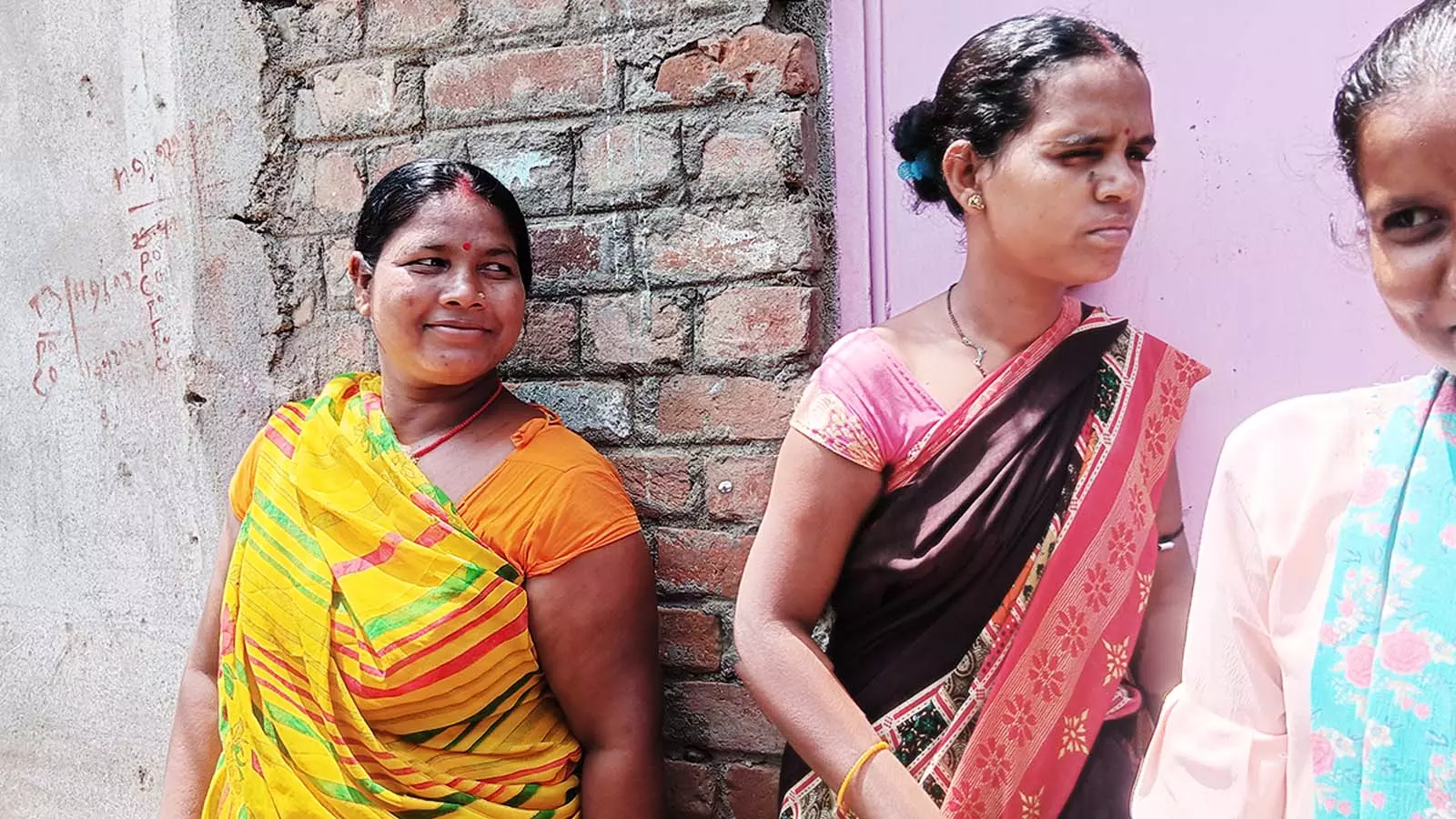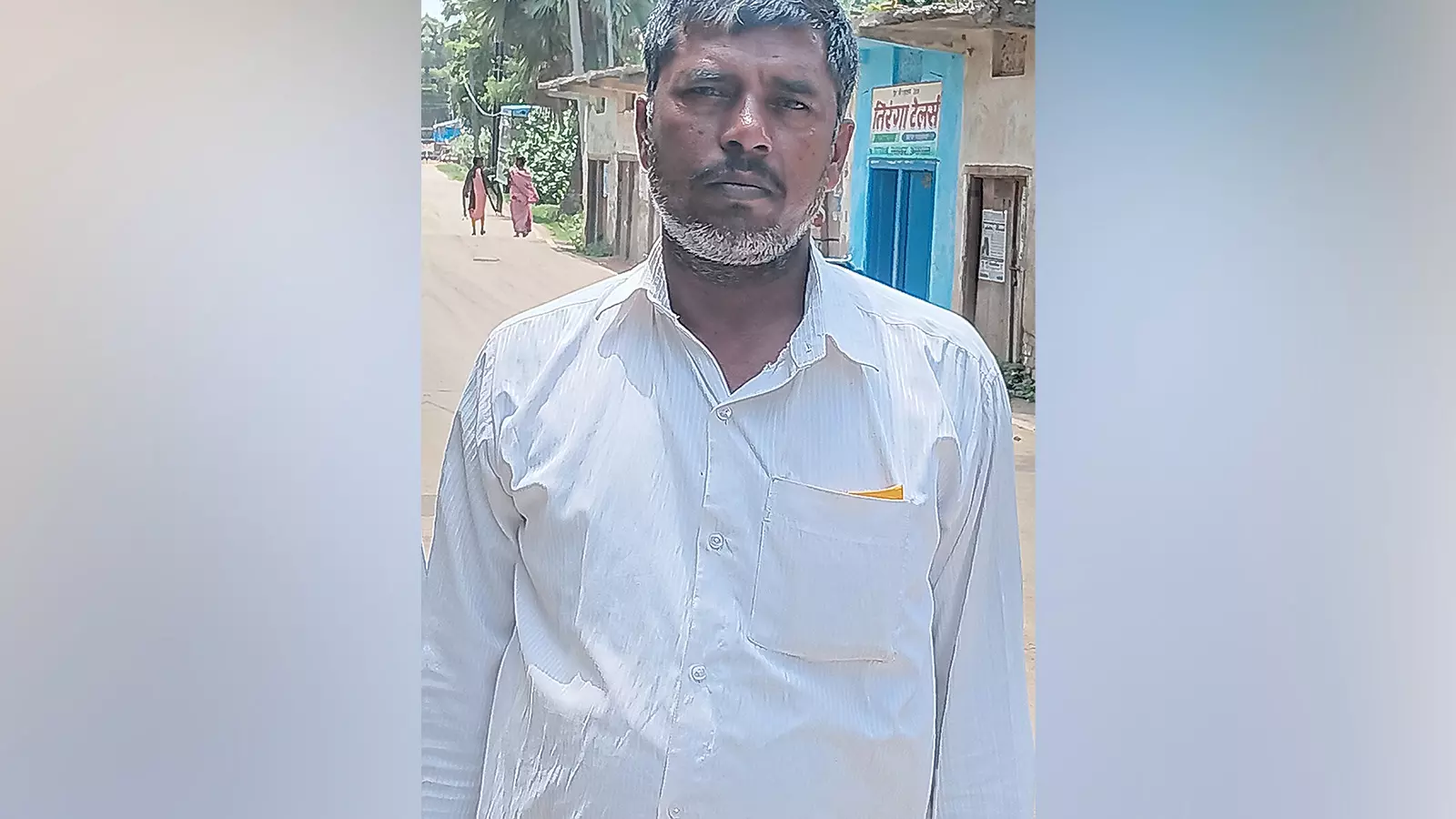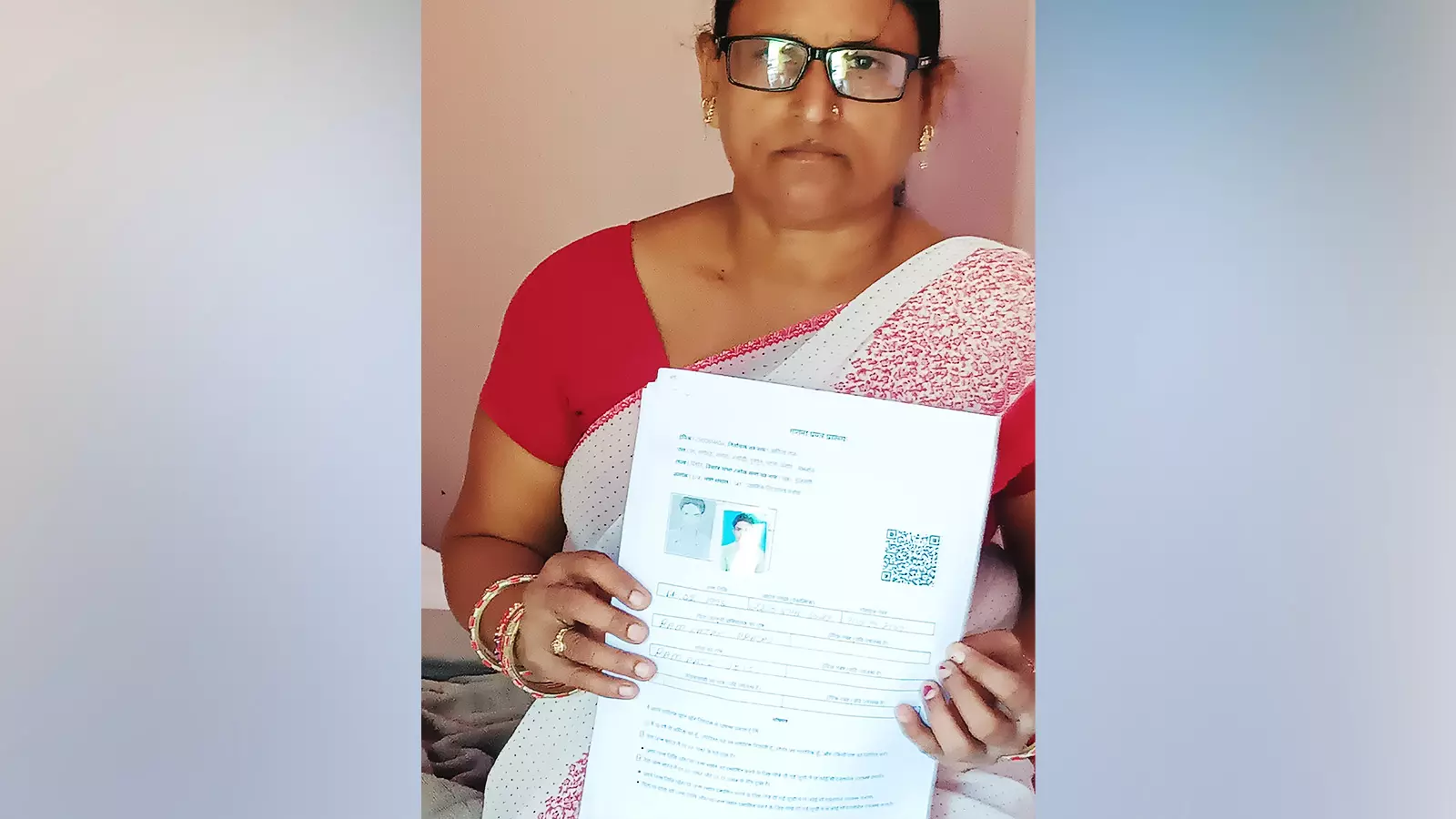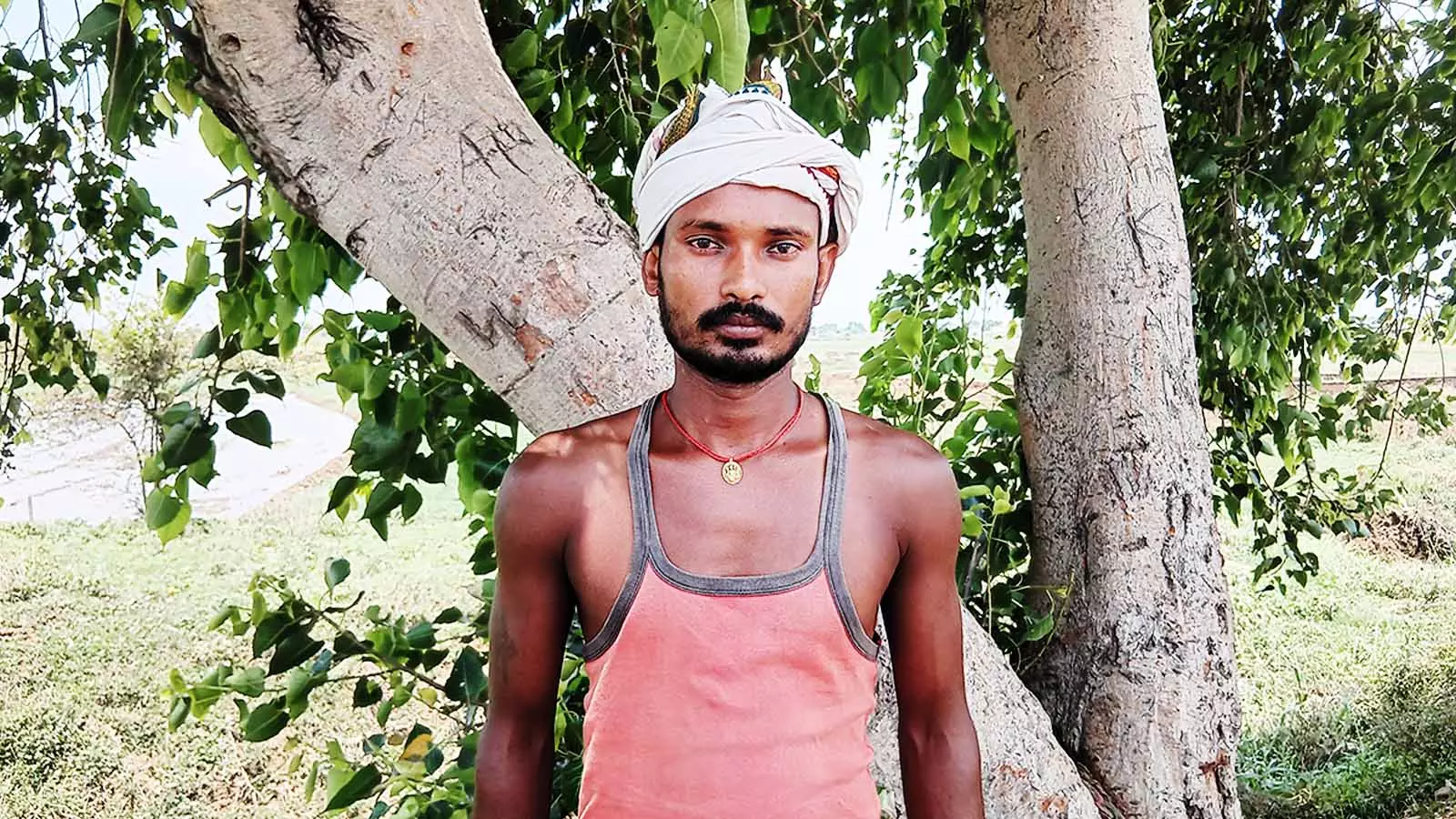
- Home
- India
- World
- Premium
- THE FEDERAL SPECIAL
- Analysis
- States
- Perspective
- Videos
- Sports
- Education
- Entertainment
- Elections
- Features
- Health
- Business
- Series
- In memoriam: Sheikh Mujibur Rahman
- Bishnoi's Men
- NEET TANGLE
- Economy Series
- Earth Day
- Kashmir’s Frozen Turbulence
- India@75
- The legend of Ramjanmabhoomi
- Liberalisation@30
- How to tame a dragon
- Celebrating biodiversity
- Farm Matters
- 50 days of solitude
- Bringing Migrants Home
- Budget 2020
- Jharkhand Votes
- The Federal Investigates
- The Federal Impact
- Vanishing Sand
- Gandhi @ 150
- Andhra Today
- Field report
- Operation Gulmarg
- Pandemic @1 Mn in India
- The Federal Year-End
- The Zero Year
- Science
- Brand studio
- Newsletter
- Elections 2024
- Events
Bihar voter enumeration gets murkier as EC begins listing without documents

“Continue,” the apex court of the country told the Election Commission (EC) on Thursday (July 10), declining to restrain the poll body from proceeding with the Special Intensive Revision (SIR) of electoral rolls in poll-bound Bihar. In a bid to soften the blow to the hopes of ordinary Bihari electorate staring at the spectre of being disenfranchised, the Supreme Court asked the poll body...
“Continue,” the apex court of the country told the Election Commission (EC) on Thursday (July 10), declining to restrain the poll body from proceeding with the Special Intensive Revision (SIR) of electoral rolls in poll-bound Bihar. In a bid to soften the blow to the hopes of ordinary Bihari electorate staring at the spectre of being disenfranchised, the Supreme Court asked the poll body to also consider Aadhaar, voter ID, and ration cards for the purpose of updating the rolls.
“If you have good reasons to discard it, discard it, but give reasons,” the court said, listing the matter for hearing on July 28, three days after SIR wraps up an exercise, which has left not just voters scrambling for documents, but even EC officials racing against time to prepare the rolls.
Meanwhile, an unsaid EC directive has added more confusion to the already controversial exercise. Booth Level Officers (BLOs) are now accepting and submitting voter enumeration forms without any supporting documents. This move is based on BLO discretion with document submission being made flexible, and in some cases, optional.
The document U-turn concern
SIR refers to the de novo preparation of the electoral roll from scratch through personal, house-to-house field verification by electoral registration officers.
In a state which has battled decades of political, economic and social neglect, each voter is required to produce one of 11 documents enumerated by EC, including passports, matriculation or higher education certificates; government or PSU identity documents, to be able to make it to the voters list. While many Indians have at least 3-4 of these documents, millions across the country haven’t even heard of them. In Bihar, where poverty and illiteracy abound, managing the documents is no easy task. So, as anger grew after people were made to queue up to prove they can vote in India, the EC asked BLOs to not take any documents.
“Hum log ke pass koi kagaz nahi tha lekin faram Anganwadi Didi ne bhar diya hai photo laga ke naya voter list ke liye. Bola hai ke kaam ho jayega,” (We do not have the documents that they are asking us to produce. But the Anganwadi worker has filled our forms and pasted our photos on them for the voter verification list. She has assured us that the work will be done,” says Daulat Devi, a poor Dalit woman in her thirties, standing outside her brick house along with her neighbours, 15 kilometres from Bihar’s capital Patna, in Manora village, dominated by different impoverished Dalit subcastes.

Daulat Devi, a Dalit woman, says she has submitted the enumeration form without any of the 11 documents the EC asked for. Photo: Mohd Imran Khan
Daulat Devi and those living in her area spent almost a fortnight running from pillar to post to arrange the documents sought from them.
“Koi labh hai ekar? Humni sab ke faltu ke chinta mein dal dehlan hain,” (What purpose does this exercise serve? We have been put through such unnecessary trouble,” she says.
Hardly 50 metres from Daulat Devi’s house, lives 46-year-old Anant Das.
Anant has submitted his photo, ration card and Aadhar number to the Anganwadi worker, who has been working as a BLO here.

Anant has submitted his photo, ration card and Aadhar number to the BLO. Photo: Mohd Imran Khan
“What can I do? I have no birth certificate or documents of my father, who died long ago. I simply attached the documents I had. It is for the government to decide, I am not an educated man,” says Anant, who runs a local brass band group.
Daulat and Anant are no exceptions, but the norm. With no success in procuring the documents in such a short span, the villagers have submitted whatever they had. Interestingly, while BLO workers were told not to accept forms without the relevant documents when the exercise began, they have now been directed to ensure increased form submission and go ahead even without documents.
Rupesh Kumar, a Patna-based social activist, believes that EC’s sudden move asking BLOs to accept and submit enumeration forms without documents is ridden with problems. “If BLOs are taking enumeration forms with signatures and without documents, it will create a new challenge for the EC in identifying genuine voters. It appears EC officials will use discretionary powers to delete or remove names of voters. The entire purpose of SIR will be diluted. The fears and concerns of the civil society over SIR are coming true,” said Rupesh.
Who needs to prove credentials?
The current SIR is the first such intensive revision in the state since 2003. Under this drive, over 8 crore people will be asked to fill out forms with forms and address proof. Over 3 crore people, who are estimated not to have been on the 2003 list, are being asked to provide additional documents.
According to the official notification of EC released on June 24, new voters born after 1987 are required to furnish their parents’ birth details if the parents weren’t listed in 2003. For those without any of the 11 proofs, the electoral registration officer (ERO) can still step in with a field inquiry.
The exercise isn’t just causing anxiety for voters but also leaving field workers exhausted. Thousands of BLOs deployed to complete the exercise include local school teachers, Anganwadi and Jeevika workers are going door-to-door distributing enumeration forms, helping people fill them, collect them and then enter them digitally.
“We have been accepting forms and encouraging people to submit without documents. We are running from one house to another and repeatedly visiting them. But it is not easy, we have been facing a lot of challenges. We are working long hours in the field amid the sweltering heat and rain. After the field work, we are required to spend long hours in the office and late at night at home to sort, arrange and upload the documents. Both my wife and I have not even found the time to fill our own forms due to high work pressure and fear of action by top officials,” a BLO told The Federal on the condition of anonymity.
Sushila Devi, an Anganwadi worker, who works as a BLO in Punpun, says she was directed by concerned officials recently to accept forms without documents and ensure as much submission of such forms for verification as possible. “I was told not to pressurise people for documents. Now, I am accepting forms with whatever attached documents or without it and uploading them. So far I have uploaded 410 against my target of 1,019. Earlier, I was directed not to accept forms without one of 11 listed documents,” she said.

Sushila Devi, an Anganwadi worker, says she was directed by concerned officials recently to accept forms without documents and ensure as much submission of such forms for verification as possible.
“Look, educated, young, middle-aged and old have one or the other document but largely people, who are illiterate, school dropouts and poor hardly possess any document other than Aadhar, Election Voter ID, Ration Card and MGNREGA job cards. It was challenging in the beginning of July for people to submit forms. Now, it is easy as we are accepting forms even without photos,” she added.
The massive push to meet enumeration targets has come at the cost of other works which the concerned officials are meant to perform.
“This has badly affected school education, functioning of anganwadi centre and work of Jeevika workers as teachers,” a government employee of Punpun Nagar Panchayat office said on the condition of anonymity.
In Punpun Bazar (market), Radheyshayam Prasad, a small potato and onion trader expressed unhappiness over the SIR document requirement. “Who has the time to go and stand in long queues at the block office for domicile or any other certificate? We have to run our businesses,” he said.
Echoing Radheyshayam’s sentiments, Mohan Gupta, a garment shop owner, said, “The government should have made the process simpler.”
While the BJP has maintained that it has nothing to do with the exercise as the Election Commission is an autonomous body, people on the ground are not making a distinction between the two in pinning the blame for their hardships.
A Patna-based social activist Arshad Azmal, who along with Rupesh Kumar, was a petitioner against SIR in the Supreme Court, said that the court has questioned the arbitrariness of ECI in the ongoing SIR. “We welcomed the apex court’s stand that the proof of citizenship is not the domain of ECI and its observation in the regard to consider other documents like Aadhar and ration card. We are hopeful for the next hearing on July 28,” said Azmal.
What enumeration?
Interestingly, while the topic of SIR has led to a political slugfest, with even the media giving it wide coverage, many in Bihar are not aware of it.
The Federal has come across several people who are not aware of the ongoing SIR. Jagdeo Kumar and his friend Balram Bind, both middle-aged street vendors, who work and stay near the railway crossing at Mithapur in Patna, have no idea and information of SIR. “What is it? We don’t know, no one informed us. No government official (BLO) visited us. Our name is on the voter list. We have been voting for years,” said Jagdeo when asked if he has submitted the documents being asked for.
A few kilometres from Punpun river, Babban Kumar, a labourer, taking rest under a tree along with four others, after a hard day at work in the humid weather, said he is unlettered and hardly knows anything about the ongoing SIR. “I heard that the government is doing something for a new voter list. When BLO first visited us early this month he was talking of different types of documents for it. But I have only Aadhar, Ration card and MNREGA card. Only this week my elder brother, who is educated, finally filled and submitted forms. Now, my name will be in the voter list and I will vote in the next assembly polls,” says Babban, in his mid 20s, who lives in Palanga village, about 12 kilometres from Patna.

Labourer Babban Kumar is sure his name will figure in the voter list. Photo: Mohd Imran Khan
‘For Musahars, there are no papers’
Junglee Manjhi, who belongs to the oppressed Musahar Dalit community, known as one of India’s most marginalised ones in the caste hierarchy, said his form was filled and submitted without any documents by a Jeevika worker along with many others of his small hamlet locally known as Dhibra Mushahari in Phulwarisharif. “Most Mushahars are poor, landless and illiterate, we are struggling for survival. There are no papers or documents like land papers, birth certificates or documentary proof of our forefathers. But many of us have Aadhar and Ration cards,” says Junglee.
According to the Bihar social-economic report, Musahars constitute 3% of the state’s total population, while Scheduled Castes (SCs) or Dalits are 19%. Among the SCs, poverty is highest among the Musahar community. About 54% of Musahar families are poverty stricken, followed by 53% among Bhuiyan and 42% among Chamar or Mochis.
Junglee says for Musahars, who mostly live with their families in mud huts and thatched houses, built on gair–majarua (government unclaimed) land either adjacent to canals, roads or railway stations, there is no question of any kagaz-pattar (documents) to prove they have land and residence here. “The government should accept Aadhar and Ration cards for inclusion in the voter list,” he says.
The Mahagathbandhan has maintained that the BJP has “directed” the EC to exclude people from smaller castes that don’t vote for it from the rolls.
“If the Election Commission is not accepting its own Elector’s Photo Identity Card (EPIC), could there be a bigger irony? I am not concerned about myself, I have filed and submitted forms with the required documents, my concern is for the poor and illiterate people who hardly have documents and are anxious that their names would be removed from the voters list,” said Afsar Ansari, a resident of Alba Colony and retired public sector bank officer.
Ansari’s voice was echoed by Mumtaz Alam, a dry fruit shop owner at Sabzi Bagh in the heart of Patna. “Initially, the Election Commission created panic by saying that 11 listed documents are required to be submitted as a proof of citizenship. Only after protests by opposition parties, the poll body has made the process flexible, but that has been done without any formal announcement,” he said.
According to the poll body’s statement on July 11, with 14 more days left before the last date of collection of Enumeration Forms, over 74% of the nearly 7.90 crore electors in Bihar have already submitted their forms.
Who will be disenfranchised?
“As of July 12, 6,32,59,497 Enumeration Forms, which is 80.11% of the total voters, have been collected in the last 17 days, since the issue of SIR instructions on June 24, 2025. Enumeration Forms can be submitted before July 25, 2025. About 77,895 BLOs along with the 20,603 newly appointed BLOs and other election officials are working tirelessly to complete the exercise in time. Over 4 lakh volunteers are also supporting the elderly, PwD, sick and vulnerable populations along with the 1.56-lakh proactive force of Booth Level Agents (BLAs) who have been appointed by all recognised political parties, has resulted in the collection of Enumeration Forms.”
Leader of Opposition in Bihar Tejashwi Yadav on Sunday raised serious doubts over the EC’s voter verification process. “We are getting information regularly that BLOs are accepting enumeration forms without documents. What will happen to all such forms, who will decide whether they are real or fake voters. And EC officials will delete the names of voters without proper checks. We have been raising this concern since the process began. Even if 1% voters are removed from electoral rolls, it will be nearly 7.9 lakh voters in Bihar, a big number,” he said.
Even as the storm over enumeration refuses to die down, it is likely the problem will intensify once the list is out. After all, the EC has the task of deciding on many genuine voters on the basis of just the forms.
